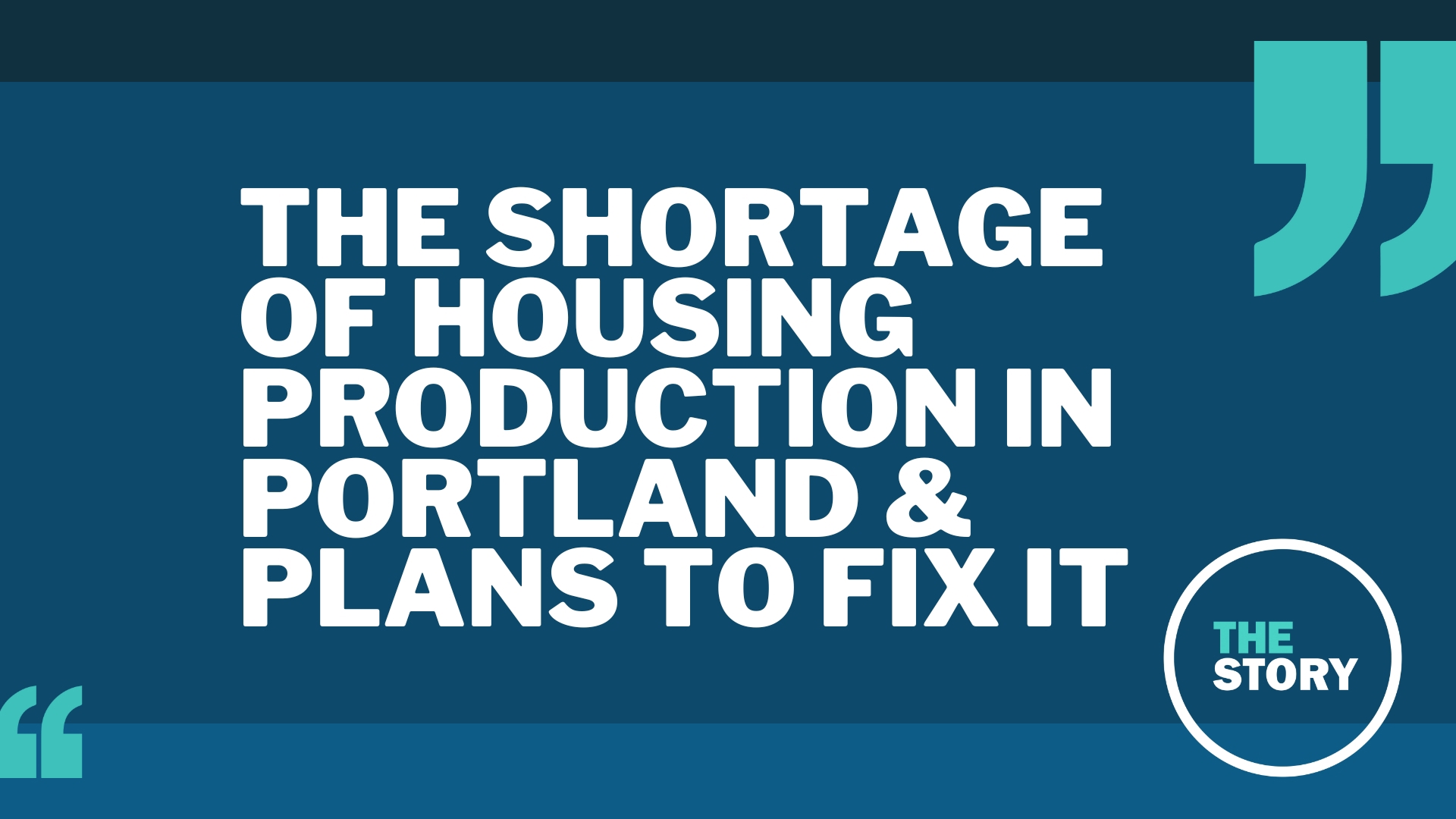PORTLAND, Ore. — Portland City Council unanimously approved a series of strategies on Wednesday that they hope combats the city’s housing shortage and affordability need.
Like many other U.S. cities, Portland is facing an unprecedented housing crisis that is making it increasingly unaffordable for most residents to rent or buy — with both rising rent and home prices consistently outpacing incomes.
According to the report, more than a third of Portland households spend more than 30% of their income on housing costs, and around 50% of renters are cost burdened, meaning that around a third of their income goes toward housing expenses.
How much housing does Portland need?
In the next two decades, Portland needs to create around 120,560 new housing units to account for the growing demand and historic underproduction.
At least 53%, or more than 63,000 units, will need to be affordable to people earning less than 80% of the Area Median Income, which is about $66,080 a year for someone living alone, and around $81,280 for a three-person household, based on the Portland Housing Bureau’s affordable housing requirements.
To hit this target, Portland needs to create around 5,200 new housing units per year. Though, to meet Governor Tina Kotek’s housing goal, Portland must ramp up its production to roughly 6,000 units per year by 2032 — a big leap.
Between 2018 to 2023, Portland’s housing production has averaged 3,172 units per year. The highest was in 2020 with 5,502 units.
So far, around 1,000 new housing units have been permitted this year — far below the normal amount seen at this point in previous years, officials said.
Even though the city is doing relatively well in creating a stable flow of affordable housing, Commissioner Rene Gonzalez said Portland is feeling the pain when it comes to adding market-rate apartments.
“Portland’s investment reputation is not great right now,” Gonzalez said. “Our standing has dropped dramatically.”
So, what’s Portland’s plan?
The bulk of the items outlined in the 214-page document are ways that the city can remove “red tape” to make it easier to build housing.
A couple big-ticket items include finding a new revenue source for housing bonds — the largest funding sources for affordable housing — and helping produce mega projects that will create hundreds of new housing units — such as the Broadway Corridor, the 34-acre development redevelopment of the former U.S. Post Office in the Pearl Distract.
Another significant step is reevaluating the law that requires new apartment buildings with more than 20 units to provide reduced rent for some units, which developers have said has been an obstacle in the past to creating more housing.
“There are 35 items in the housing production strategy,” said Commissioner Carmen Rubio, who oversees the bulk of Portland’s housing and development bureaus. “These are 35 ways that we can adjust the levers we control and use the tools in our toolkit.”
According to Rubio, two of these items have already been completed, both targeted at easing development, and a little over a dozen are in the works. Later this year, the city will look at revising zoning bonuses and incentives to create more housing.
The focus of the housing production strategy will be on generating more affordable housing, increasing homeownership and middle-income housing as well as creating more housing access and reducing development barriers.
In Wednesday’s city council meeting, Rubio also tasked the city with reducing the time it takes for affordable housing and middle housing projects to be permitted within 90 “city desk days.” Middle housing projects include accessory dwelling units, duplexes and fourplexes. Currently, it can take between three to eight months to approve new residential and commercial construction.
Portland’s affordable housing needs?
Around one-fourth of the housing needed is for extremely low and very-low incomes — which is an annual salary of less than $49,560 in Portland. To meet this need, it’ll require the city to continue to invest approximately $70 million per year, officials said.
Between the Portland Housing Bond and Metro, the largest sources of affordable housing, the city has already been outputting around $60 million a year.
"Portland has been in a continual state of a housing emergency since 2015," Gonzalez said. "I appreciate the work that has been presented today, but I am concerned that it is too incremental and lacks the robust response necessary to respond to the crisis of housing production for our city."
Gonzalez added that the high cost of housing impacts all who live in Portland and its scarcity is a contributor to the city's homeless crisis, as well as can hurt to attract families and a workforce.

